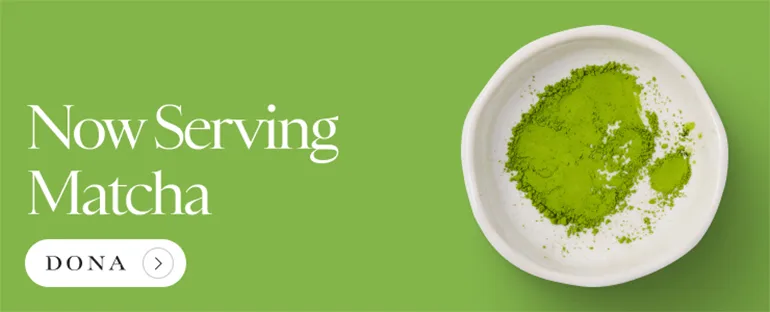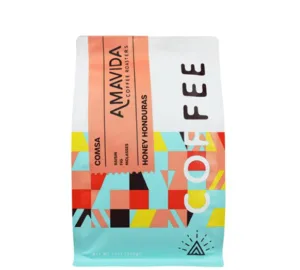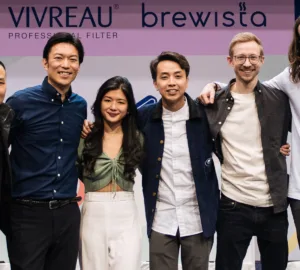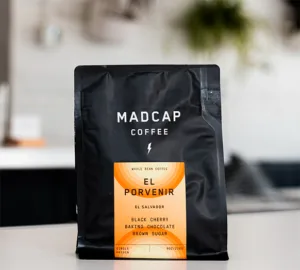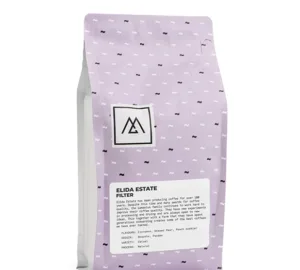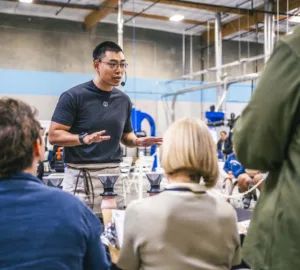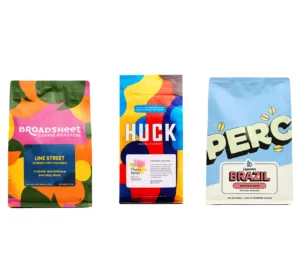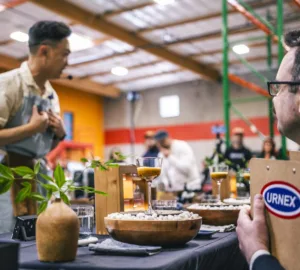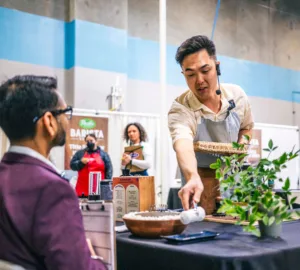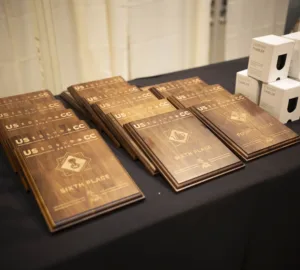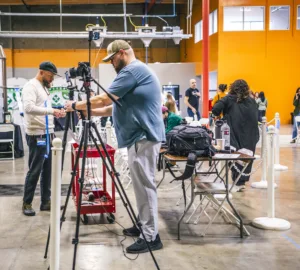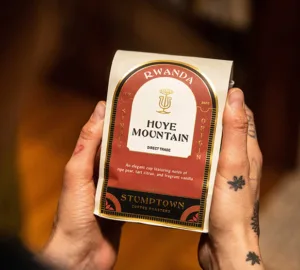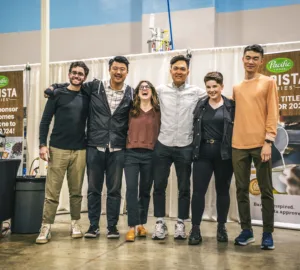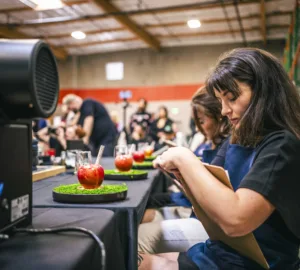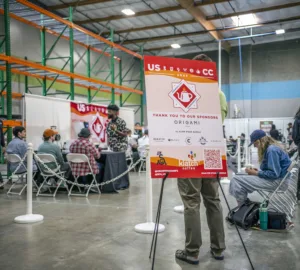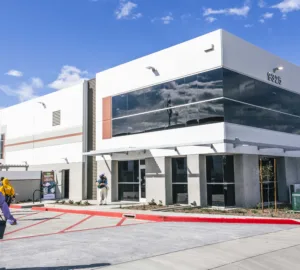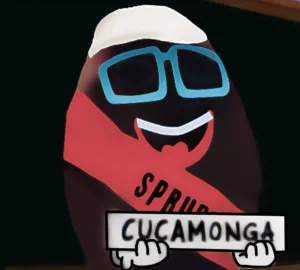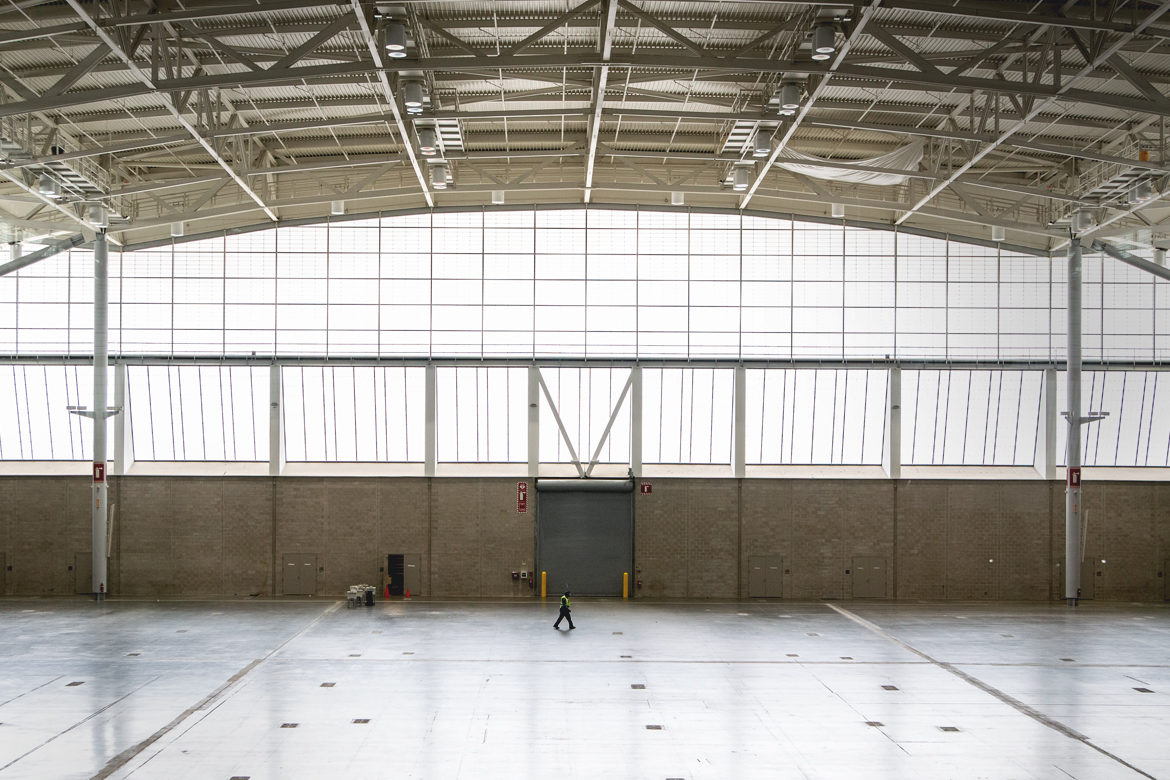
Just a few long, long weeks ago in February, the annual United States Coffee Championships took place in Orange County, California. Competitors from across the nation gathered to showcase spectacular coffees and hard-practiced skills in a range of events, including the United States Barista Championship and United States Brewers Cup Championship. Each competition drew from a series of regional qualifying events, producing a national field of competitors representing the best of the best, an elite sub-section of baristas and coffee professionals in the American specialty coffee industry.
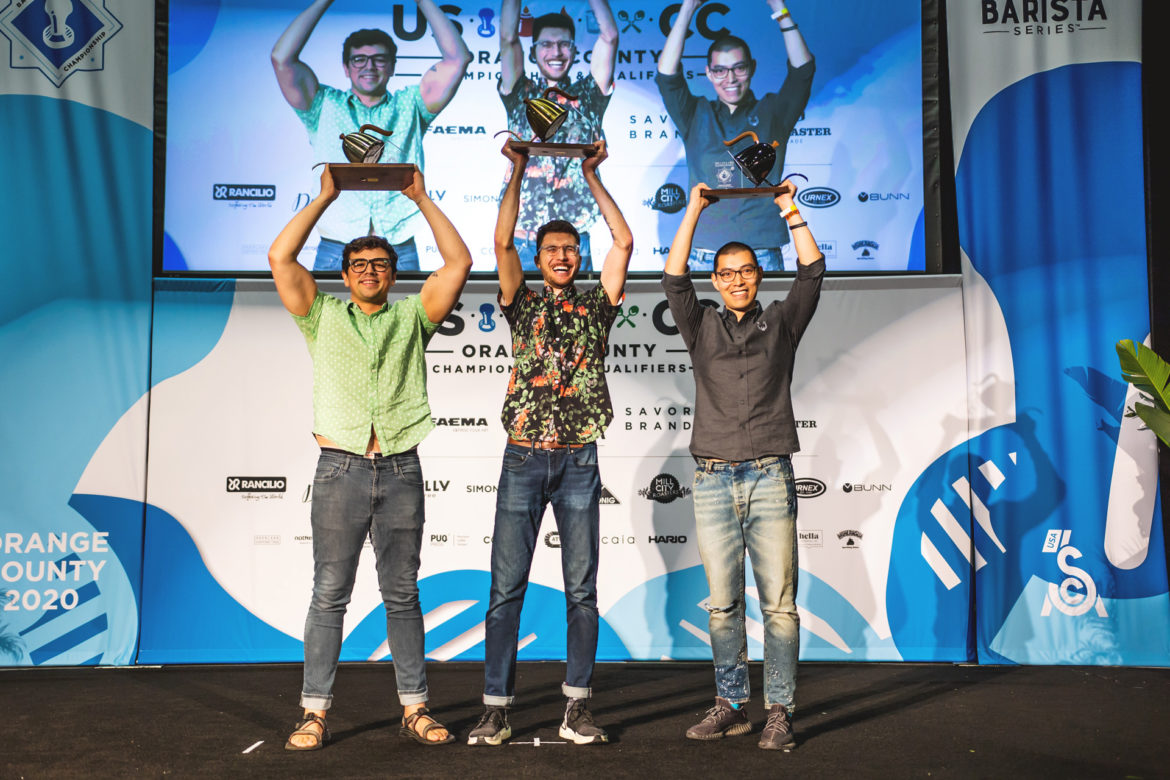
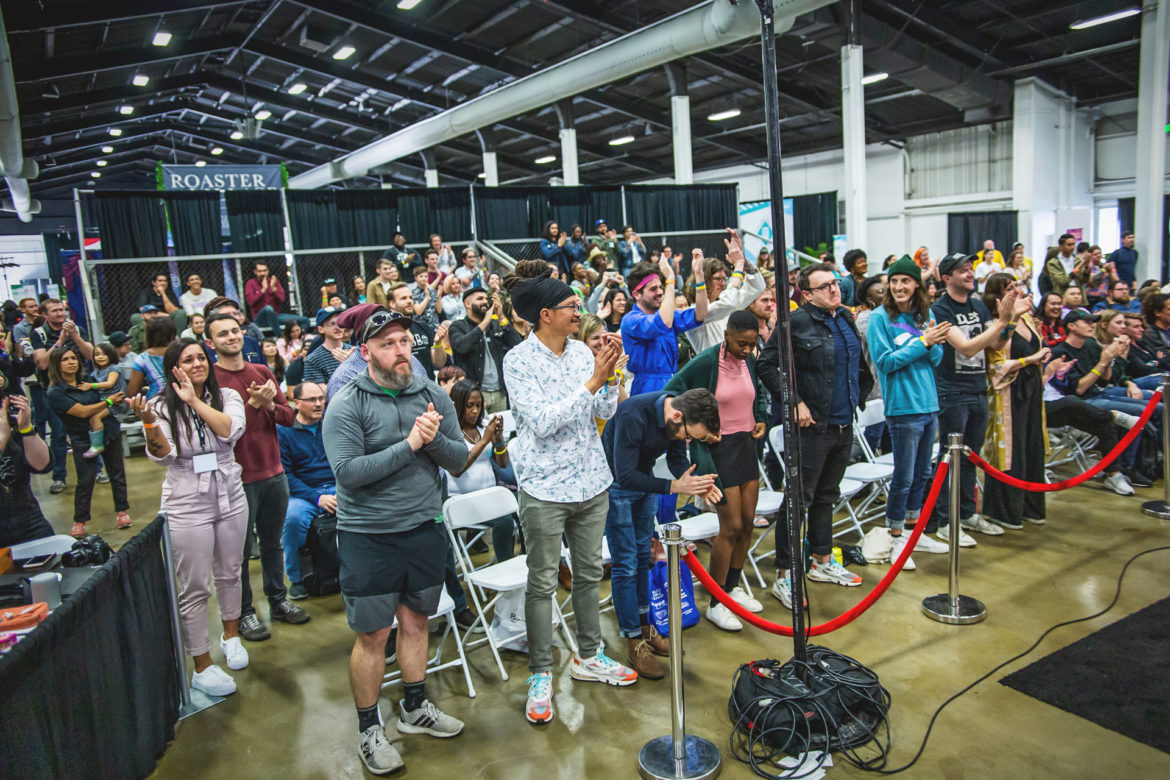
Ideally, the months that follow these events are a time for competitors—whether they placed in the top slots or not—to head home with a renewed sense of community-inspired purpose, additional professional opportunity, and the wisdom of experience to bring back to their day jobs. But here in April 2020, in the midst of the COVID-19 pandemic, almost no coffee person’s day job looks the same.
Competition isn’t everything, but the February event offers us a fascinating lens through which to view how today’s new reality is impacting America’s elite baristas. To learn more we reached out to a range of Barista and Brewers Cup competitors and asked for an update. Two months ago they took the stage in Orange County—what’s happening with them today?
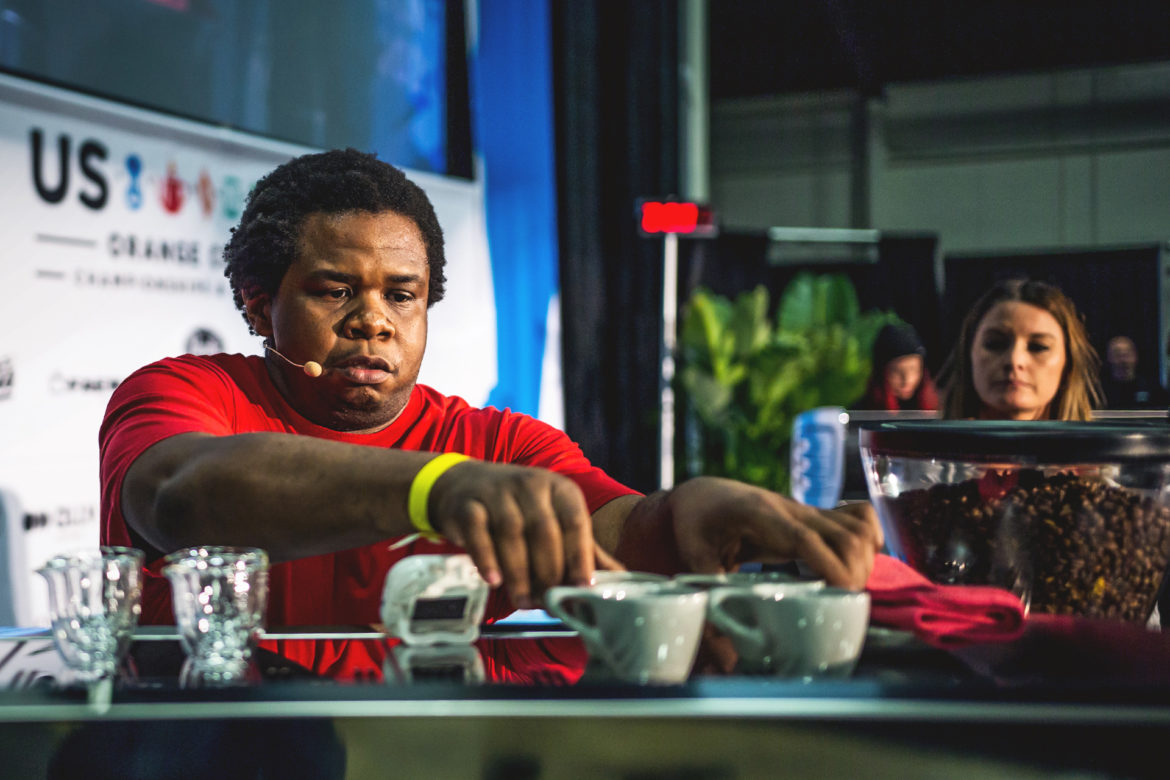
Sprudge: Are you, as of the time of this interview, actively working in coffee? Are you furloughed, laid off, or otherwise?
Michelle Johnson, US Barista Championship, Red Bay Coffee: I’m not actively working in coffee. I’m furloughed.
Adam JacksonBey, US Barista Championship: As of right now no, I am not working in coffee. I have been furloughed since about 3/31, which seems to be about when most of the folks I know were furloughed. I’m also working on coffee-related projects on the side to stay busy.
Elika Liftee, US Brewers Cup Champion, Onyx Coffee Lab: Yes, I am actively working in coffee. We have furloughed about 40% of our staff. Though this past week has allowed us to bring back about two people per cafe. So, we are probably around 34% furloughed. With the closing of our public and wholesale classes I am working in our cafes and trying to drive traffic to website sales. Update: At press time, Liftee reported that Onyx had been able to rehire up to 85% of staff and is hoping to invite the remainder of furloughed personnel shortly.
Anthony Ragler, 6th place, US Barista Championship, Liemco Ltd.: Currently, I’m working with a coffee equipment service company. Thankfully, since we work with a lot of non-specialty-focused clientele, we still have work at least part time to keep us afloat, and all employees are still being paid full-time, so that’s a blessing. Not financially struggling is something that I am fortunate to experience during this tough time.
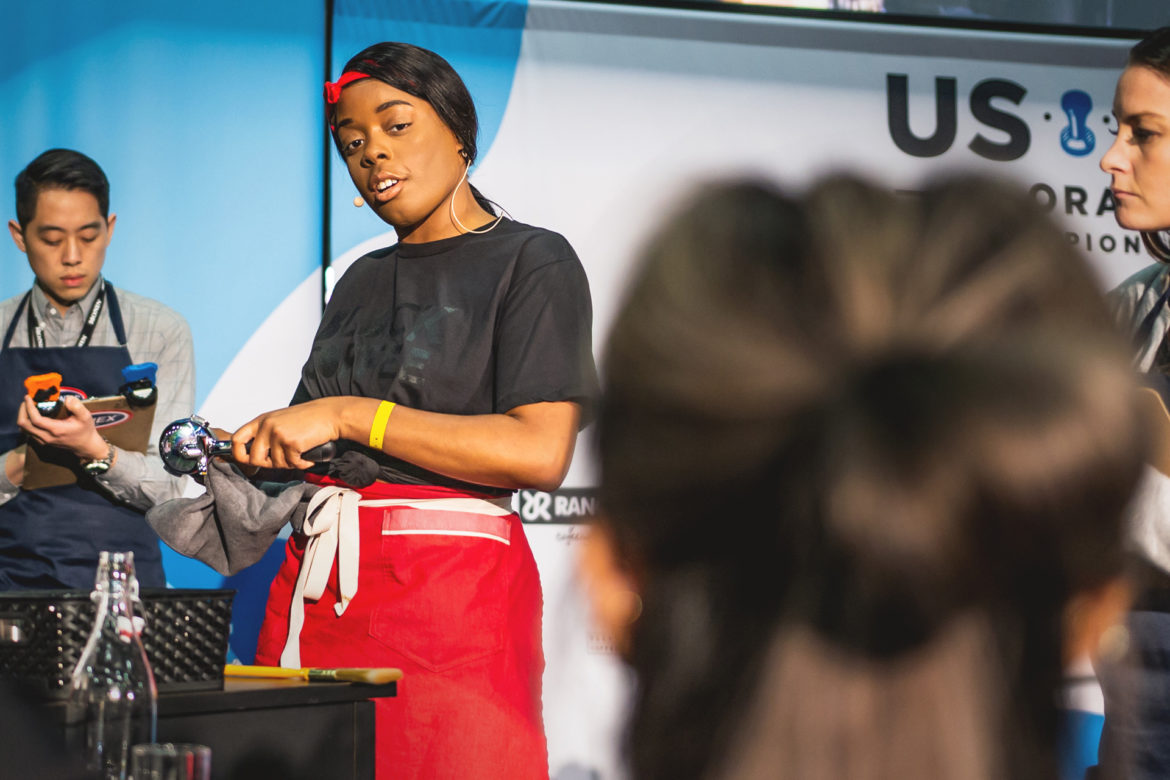
Sprudge: Is the company you worked/operated for prior to the pandemic still operating? If so, in what capacity?
Isaiah Sheese, 5th place, US Barista Championship, Archetype Coffee: We are still operating as carry-out only. Our website is fully functioning and helping to supplement all of the wholesale that we have lost during this season.
Tyler Duncan, 5th place, US Brewers Cup, Topeca Coffee: Topeca is still operating, though obviously with a fairly significant limp. Our two namesake locations are operational at limited hours, with limited staff, and only “curbside”. The roastery is still going, though orders are greatly diminished. We’re kept afloat thanks largely to grocery and online sales.
Michelle Johnson: Red Bay is still roasting while the roastery cafe and Broadway Box (shipping container location on Broadway in Oakland) are open on a limited basis for takeaway items. The Red Bay Coffee van has also been out serving coffee and retail beans in different areas around Oakland.
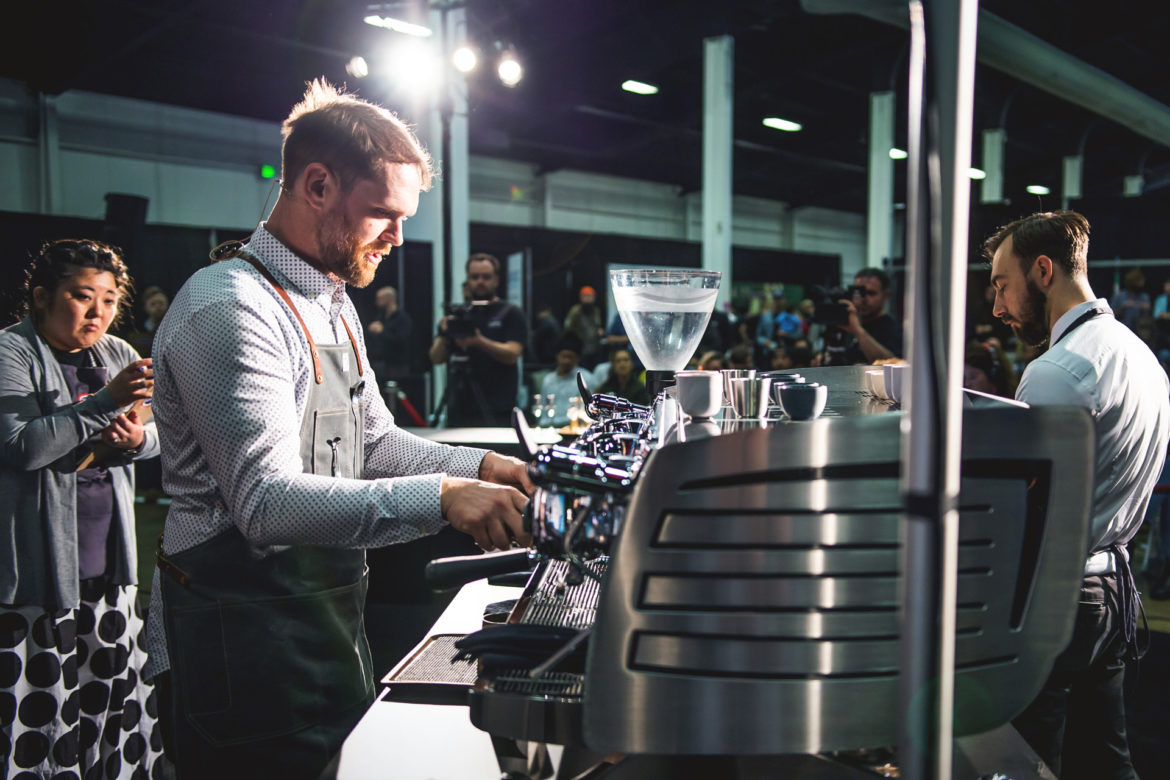
Sprudge: What are your biggest concerns about your business or employment right now?
Lance Hedrick, 2nd place, US Brewers Cup, Onyx Coffee Lab: I’m sure this is a shared concern, but my biggest fear is what the landscape of specialty coffee will look like following the pandemic. As people are brewing more and more at home, what will the traffic to shops look like once the quarantine is lifted? What will the wholesale program, which is my main role, look like if shops aren’t doing well? Will all roasters be converted to shipping singles to residential addresses and grocery stores? What happens to all the baristas, which make up a majority of most coffee company’s employment?
Andrea Allen, US Barista Champion, Onyx Coffee Lab: In the long run I’m concerned about the future of our cafes. They are designed for intentional human interaction, a place for the community to meet, work, and hang out. With the unknowns of the pandemic and the absolute need for social distancing, I wonder how we will begin to step back into community? As this situation wears on I wonder how the new isolating patterns we’ve formed, learned to live with, and perhaps begun to enjoy might change. I’m anxious to see what we will look like on the other side of this.
Elika Liftee: My biggest concern for my business is maintaining high retail sales to float the business. If retail becomes as slow as wholesale, then we would likely have to reduce staff further. Should Arkansas issue a Shelter in Place order, we would have to end cafe service.
Tyler Duncan: My biggest concern about business is that shops aren’t going to be able to open up fully and hire everyone back, or give them the same hours. The food and beverage industry is massive and the dent to our economic success is a dent in the entire country’s economic success (unless we eat the rich).
Michelle Johnson: Even though furlough comes with a promise of job security, that can always change to a lay off if the business isn’t able to stay afloat under current conditions. I haven’t had a reason to worry about that too much yet, but it is on the back of my mind.
Adam JacksonBey: My biggest concern is if I would find the same amount of hours that I had before because I was only really working part-time in the shop and doing freelance stuff on the side, and the freelance work has completely dried up and who knows what will happen with hours once we come back.
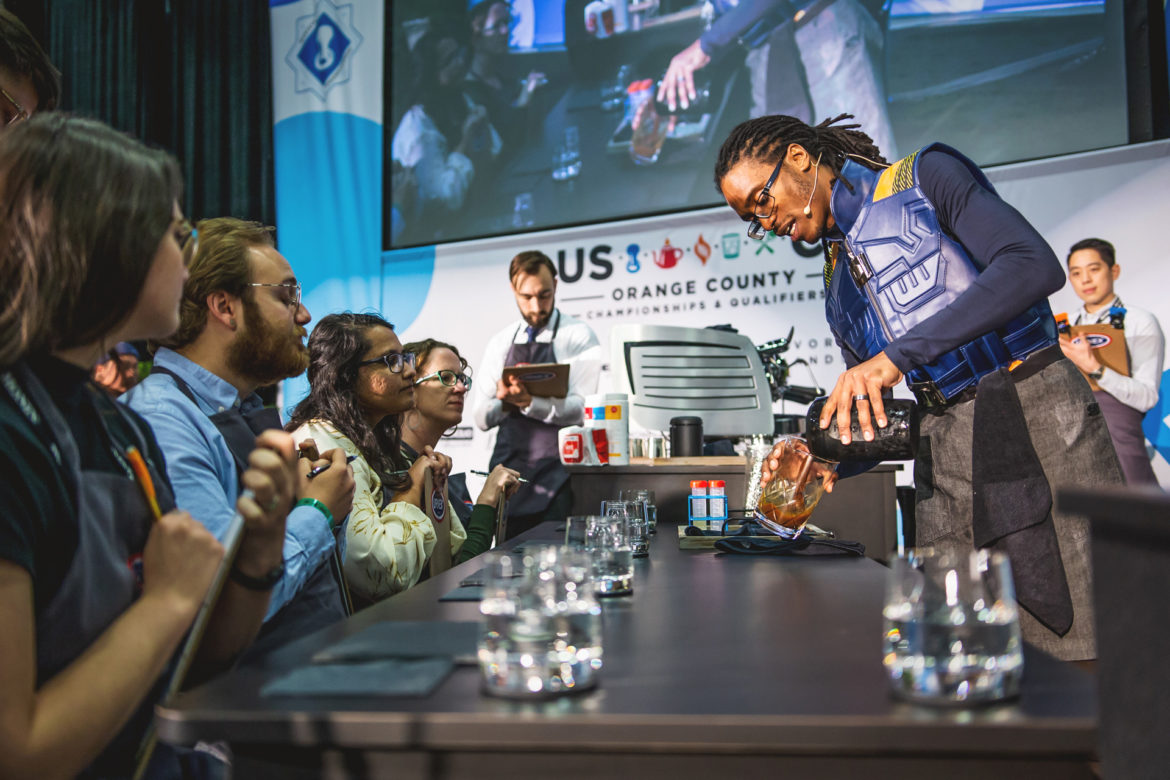
Sprudge: Do you have any hopes or indication as to whether you’ll be able to return to a similar job function you had before? If so, what does the future look like as far as you can see it?
Anthony Ragler: In an ideal world, we’ll all recover from this 6-12 months post COVID, and opportunities will continue to open up and the industry thrive. My main hope is that coffee professionals are still taken care of well enough to want to stay within this industry once all of this blows over.
Elika Liftee: I expect my job to return to normal after this is over. I hope that states are patient. That’s my message, patience. When the cases begin dropping is not the time to return to normal, wait and listen to the CDC so that we don’t prolong this. I am worried about other cafes. I suspect that many roasters and cafes who were forced to close their doors may never open them again and that worries me for the future of Specialty Coffee.
Michelle Johnson: I’m hopeful I’ll be able to come back to work. I worked remotely in LA from home, pre-COVID, creating educational and training content for the company. A lot of those projects have been put on hold but I’m optimistic of the direction we could take if we were to pivot to virtual learning. I’ve written online coffee courses before and found a love for doing virtual lectures (I would do trainings from LA to Oakland monthly), so I hope I’ll have the opportunity to fully lean into that.
Adam JacksonBey: I have hopes for sure, I’m a hopeful guy, but no indication as of yet. Because I was working at one of the busier stores, I think that my job/role is fine, but I don’t quite know for sure. Right now, I can only see about a day in the future, which is better than when this all started and I could only see 5 minutes, so I’m literally taking everything one day a time and hoping for the best.
Isaiah Sheese: I definitely am not a fortune teller… I do have high hopes that things will normalize sooner than later. As for what the new normal looks like, I have no clue. I do know one thing, the specialty coffee industry is filled with the kindest, most giving community I have ever been a part of, and I have no doubt that we will be able to band together and weather this thing. Stay healthy and hopeful even when it looks grim.
Liz Clayton is the Associate Editor at Sprudge Media Network. Read more Liz Clayton on Sprudge.
Photos by Charlie Burt for Sprudge Media Network.
Sprudge is an official media partner of the US Coffee Championships. For complete coverage of the 2020 US Coffee Championships visit SprudgeLive.com, our dedicated hub for coffee sports.













